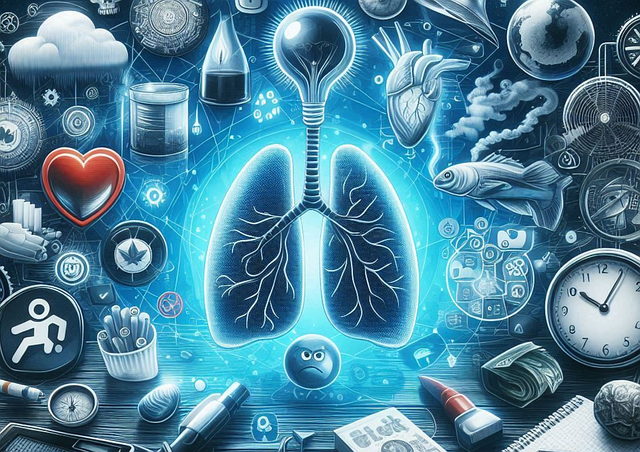Addiction Recovery Centers Near Manchester, NH: A Comprehensive Guide
Outpatient and inpatient addiction recovery centers in Manchester, New Hampshire, offer tailored pro…….
Over 15% US adults have used prescription painkillers not prescribed to them.
In the heart of New Hampshire lies a vibrant city with a significant role in healthcare innovation: Manchester. This urban center has emerged as a pivotal hub for addiction recovery services, attracting national and international attention. “Addiction Recovery Centers Manchester, New Hampshire” is not just a phrase; it represents a comprehensive approach to treating substance use disorders, offering hope and healing to countless individuals. This article aims to delve into the multifaceted world of these recovery centers, exploring their impact, development, and potential for shaping the future of addiction treatment globally.
An Addiction Recovery Center in Manchester, NH, is a specialized healthcare facility dedicated to providing comprehensive treatment and support for individuals struggling with substance use disorders (SUDs). These centers offer a range of services designed to address the physical, psychological, and social aspects of addiction. The core components typically include:
The concept of addiction recovery centers has evolved over the past few decades, reflecting a growing recognition of substance use disorders as chronic illnesses. Manchester’s role in this evolution is notable. In the early 2000s, the city witnessed a surge in opioid-related overdoses, sparking local initiatives to address the crisis. This led to the establishment of several recovery centers aimed at providing immediate care and long-term support.
Over time, these centers have expanded their services, integrating evidence-based practices and embracing technological advancements. Today, they serve as models for effective addiction treatment, attracting professionals and researchers seeking to improve recovery outcomes worldwide.
The reputation of Manchester’s addiction recovery centers has spread beyond New Hampshire’s borders. Internationally, there is a growing interest in understanding and adopting successful recovery models. Professionals from various countries visit Manchester to learn from its innovative practices, leading to the export of these techniques globally.
Across the United States, there is a notable trend towards integrating behavioral health services into primary care settings, including addiction recovery centers. This shift reflects a move away from isolated treatment centers towards more accessible, community-based care. New Hampshire, with its successful models in Manchester, has been at the forefront of this movement, influencing policy and practice across the nation.
The global impact is evident in the increasing number of countries investing in addiction recovery infrastructure. Many nations are recognizing the importance of comprehensive treatment and allocating resources accordingly. For instance, countries like Australia, Canada, and several European nations have seen significant expansions of their recovery center networks, drawing inspiration from Manchester’s approach.
The addiction recovery market is a vital component of the healthcare industry in New Hampshire and beyond. According to recent reports, the global addiction treatment market was valued at USD 187.4 billion in 2020 and is projected to grow at a CAGR of 6.5% from 2021 to 2028. This growth is driven by rising substance abuse rates and increased awareness of the importance of specialized treatment.
Private equity firms, venture capitalists, and charitable foundations have shown significant interest in addiction recovery centers. In recent years, there has been a trend towards investing in specialized facilities that offer a range of evidence-based treatments. Manchester’s success has attracted such investments, contributing to the expansion and improvement of recovery services in the region.
The presence of top-tier addiction recovery centers has had a positive economic impact on Manchester. It attracts tourists interested in addiction treatment tourism and stimulates local businesses through increased footfall. Furthermore, these centers contribute to the city’s reputation as a healthcare hub, fostering professional development and attracting talent in the medical and therapeutic fields.
One of the most significant technological advancements in Manchester’s recovery centers is the integration of telehealth services. This enables individuals in rural or remote areas to access specialized addiction treatment virtually, improving accessibility and reducing barriers to care. Telehealth also facilitates ongoing support and aftercare, ensuring continued engagement in the recovery process.
Digital platforms and mobile applications are being utilized to deliver cognitive-behavioral therapy (CBT) and other evidence-based interventions. These tools offer personalized, interactive programs that can be accessed anywhere, at any time, enhancing the flexibility of treatment. For instance, apps focused on mindfulness, stress reduction, and medication adherence have shown promising results in pilot studies.
Advanced data analytics is revolutionizing addiction treatment by enabling personalized care plans. By analyzing patient data, recovery centers can predict relapse risks, identify individual responses to treatments, and tailor interventions accordingly. This approach has the potential to significantly improve long-term recovery rates.
Addiction recovery centers in Manchester operate within a well-defined regulatory framework established by the New Hampshire Department of Health and Human Services (DHHS). The DHHS sets licensing requirements, ensures quality standards, and monitors compliance to protect patients and promote ethical practices.
One of the primary challenges is ensuring equitable access to addiction recovery services. Despite Manchester’s efforts, there is still a need to expand services to reach underserved populations, including rural communities and individuals with limited financial resources. Transportation barriers, cultural sensitivities, and language differences can hinder access, requiring tailored solutions.
Stigma surrounding substance use disorders remains a significant obstacle. Many individuals struggling with addiction face social and self-stigmatization, which can deter them from seeking help. Recovery centers play a crucial role in challenging these perceptions through public education, peer support, and successful outcome sharing.
Recruiting and retaining qualified healthcare professionals is another challenge. Addiction treatment requires a multidisciplinary approach, including physicians, psychologists, social workers, and nurses with specialized training. Ensuring continuous staff development and implementing evidence-based practices are essential to maintaining high-quality care.
Sustainable funding for addiction recovery centers is an ongoing concern. While public funding is crucial, the growing demand for services often outstrips available resources. Diversifying funding sources through partnerships with private insurers, charitable foundations, and community fundraising events is essential for long-term viability.
The Manchester Community Health Center (MCHC) launched a comprehensive addiction recovery program that integrates medical, mental health, and social services. This model includes an outpatient clinic offering individual and group therapy, medication management, and case management. The program’s success lies in its holistic approach, with over 70% of clients achieving stable sobriety within one year.
The New Hampshire Telehealth Network (NHTN) partnered with local recovery centers to implement a telehealth initiative for individuals in rural areas. This program provides virtual individual and group therapy sessions, medication monitoring, and peer support groups. NHTN’s data shows that telehealth participation rates are high, with clients reporting improved access and satisfaction levels.
The Children’s Hospital at Dartmouth-Hitchcock (CHD) introduced a specialized addiction recovery program for adolescents. This program addresses the unique needs of young people struggling with substance use disorders, incorporating family therapy, educational support, and age-appropriate treatment modalities. Initial outcomes indicate improved retention rates and positive behavioral changes among participants.
The future of addiction recovery centers in Manchester, NH, holds immense potential. Several growth areas include:
Addiction Recovery Centers Manchester, New Hampshire, represent a beacon of hope and healing for individuals grappling with substance use disorders. These centers have evolved from isolated treatment facilities into comprehensive care hubs, influencing global practices and policies. As the field continues to advance, Manchester’s success serves as a testament to the power of integrated, evidence-based approaches, community collaboration, and technological innovation in transforming lives and communities.
Q: What makes addiction recovery centers in Manchester unique?
A: Manchester’s recovery centers are renowned for their holistic approach, integrating medical, mental health, and social services. They have successfully adopted technological advancements, telehealth services, and evidence-based practices, ensuring comprehensive and accessible care.
Q: How do these centers address the opioid crisis?
A: Manchester has been at the forefront of responding to the opioid epidemic with initiatives like prescription drug monitoring programs, naloxone distribution, and education campaigns. Recovery centers play a vital role in promoting harm reduction, providing treatment, and supporting recovery for individuals affected by opioids.
Q: Are addiction recovery services covered by insurance?
A: Insurance coverage varies, but New Hampshire has made strides in expanding Medicaid and private insurance benefits for addiction treatment. It’s advisable to check with specific insurers and the DHHS for up-to-date information on coverage policies.
Q: How can someone find the right recovery center for them?
A: Consider factors like location, program offerings, therapeutic approaches, and personal needs. Research centers, reach out to staff, and consult with healthcare providers or support groups for guidance in making an informed decision.
Q: What role does family play in addiction recovery?
A: Family involvement is crucial for successful long-term recovery. Many recovery centers offer family therapy sessions, providing a supportive network that fosters understanding, communication, and ongoing recovery.

Outpatient and inpatient addiction recovery centers in Manchester, New Hampshire, offer tailored pro…….

Narcotics Anonymous (NA) meets in Manchester, NH, offer peer support for addiction recovery. Local N…….

Manchester, NH, features diverse Addiction Recovery Centers offering tailored care from outpatient p…….